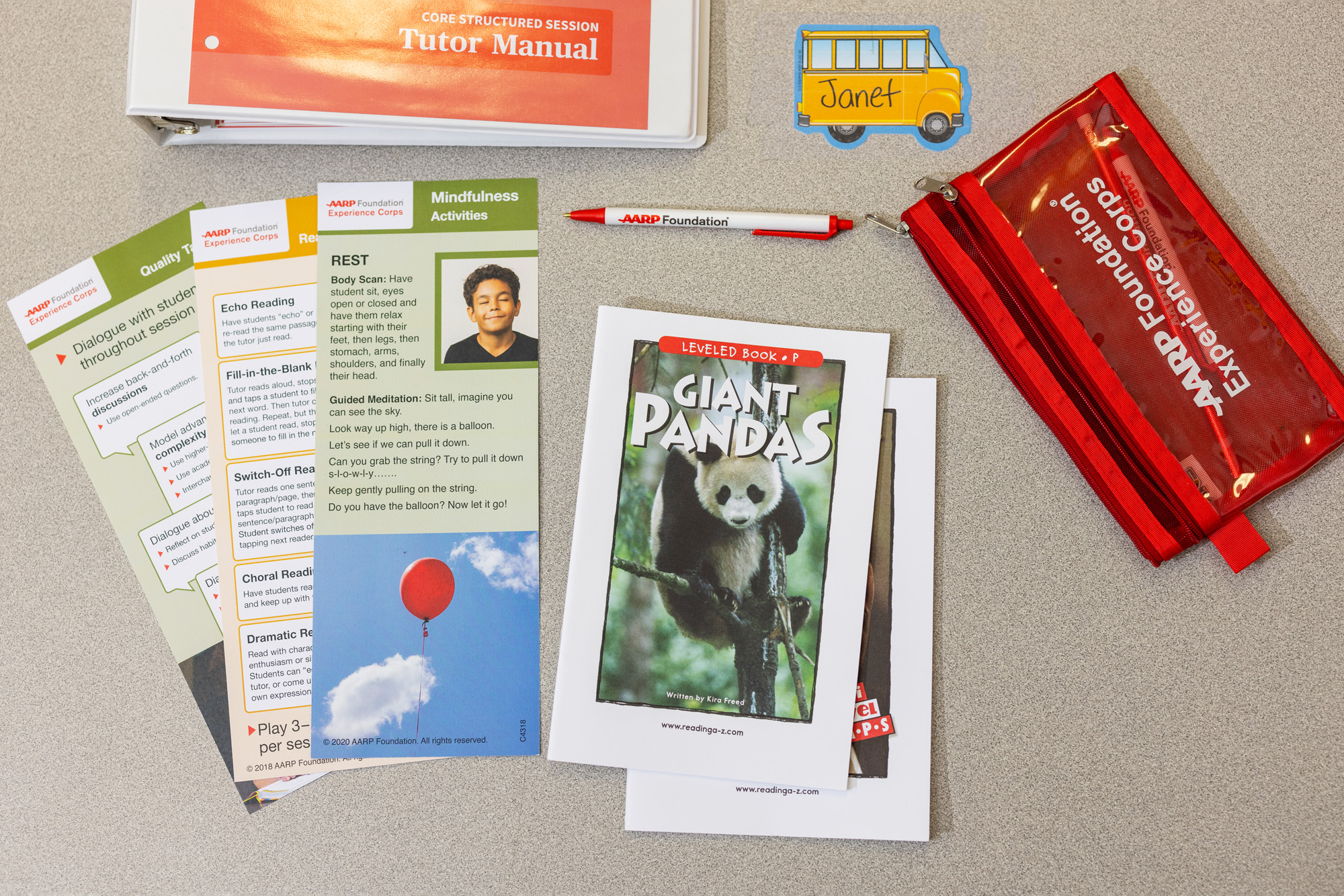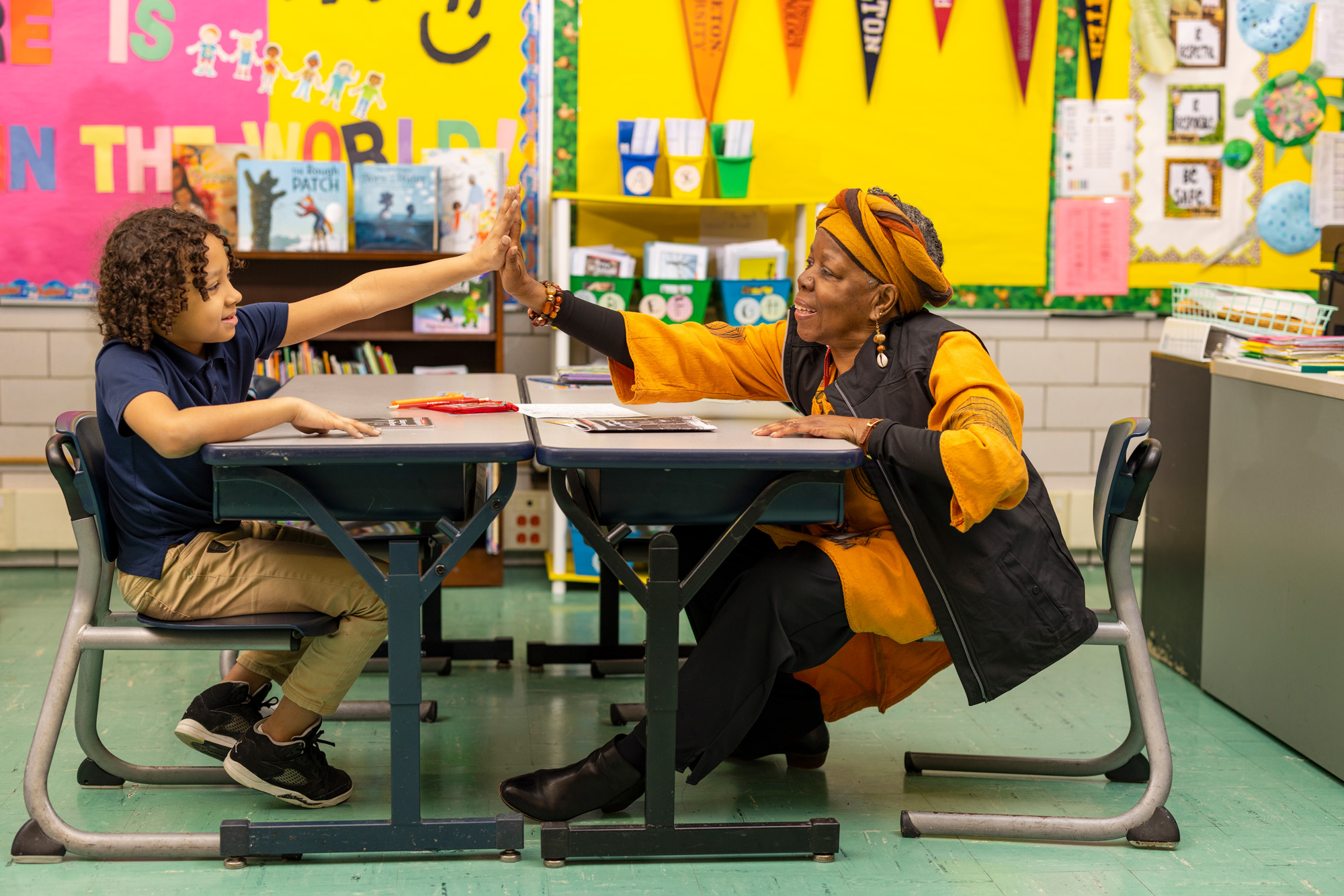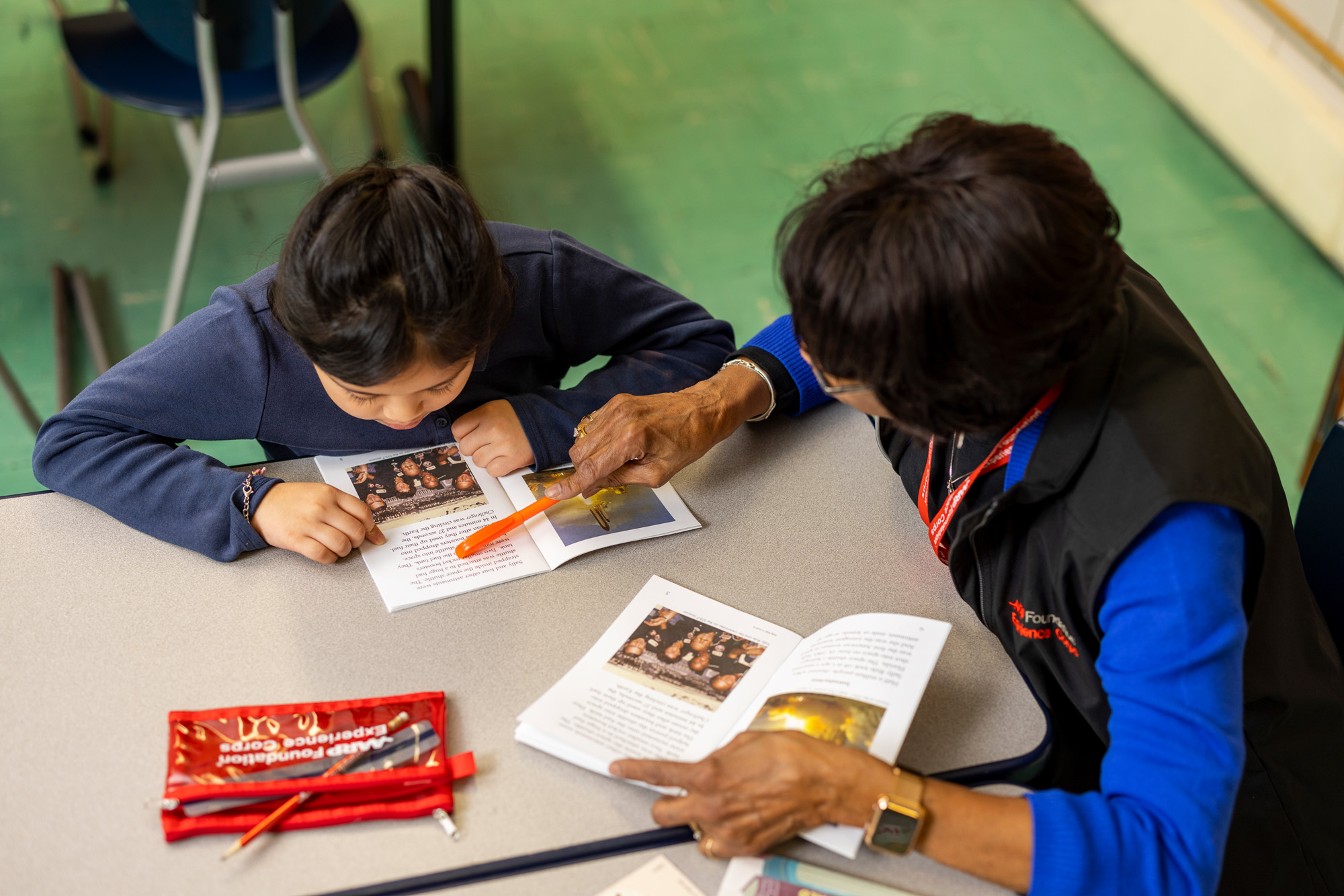Volunteers are helping improve high school graduation rates by mentoring kindergartners to third-graders
By Kay Patterson
SPECIAL TO THE NEWS
It started one morning last summer. I was drinking coffee and reading The News, which offered the announcement of a program starting in the fall – adults volunteering as reading mentors with Buffalo schoolchildren in kindergarten through grade three.
Before that moment, I’d mused about finding a volunteer activity. That thought went from vague to specific in a hurry.
I live in a poor neighborhood in University Heights and see kids who are struggling every day. We talk. They love to help me walk my dog and sometimes pull a weed or two. Can they read? Chances are some have trouble. This is personal to me. Reading is pivotal to children growing into thriving adults, which is pivotal to Buffalo’s re-emergence. And I have family members who repeated grades because of their struggles with reading.
Read to Succeed Buffalo, a local organization with a name to match its mission, opened the Experience Corps program with a $200,000 grant from the AARP Foundation, matched by another $200,000 from the John R. Oishei Foundation and Community Foundation for Greater Buffalo. The program has an important backer in Buffalo Mayor Byron Brown. Executive Director Anne Ryan and her staff were surprised by the tremendous response to the call for volunteers – three times the 40 available positions – so I was pleased to be chosen.
During the two-day training, we learned that Experience Corps, which AARP already has operating in 25 cities, came about in response to data that children who don’t read at grade level by fourth grade are four times less likely to graduate from high school.
Sobering information. It’s a puzzle, figuring out how to intervene. One small piece is having more adults like me reading to and with kids. Buffalo’s Experience Corps schools are Waterfront, West Hertel and Lydia T. Wright School of Excellence.
All trained and ready to go, I indulged in a little fantasy of myself with quiet, maybe even shy, children who come out of their reading shells and love books after a year with Ms. Kay. But after one day observing my assigned third-grade classroom, I knew the truth is much more complex.
On day one, I saw that my kids, as I already was calling them, are a challenge. Ms. Kelly is ahead of them every step of the way. She’s a substitute for their teacher, who is on a prolonged absence.
Whiteboard marker in hand, she roves the front of the room, firm but ever kind and encouraging.
“Jamal, I need you to sit down.”
Jamal considers complying and she catches him in the act. “Come on,” she says quietly to him. “You can fix this.” Good behavior gets him onto the participating list for a game of Mum Ball.
She moves on, avoiding a test of wills.
“Erique, have you finished?” He waves his paper as proof.
“Good!” He’s made the list.
The kids’ effort to get on the list continues with numerous disruptions. Through it all, Ms. Kelly keeps the class focused on the math lesson.
Mum Ball was new to me and brilliant for this boisterous group. Participants sit on top of their desks as they pass a foam ball by eye contact alone. Speaking is against the rules.
While Ms. Kelly teaches the children, she also teaches me, because starting next week, I will read with three small groups from this class twice weekly.
•••
Children chosen for the Experience Corps program are evaluated as reading slightly below grade level. For each session, the kids and I troop downstairs to the library. We chat about the news of the school day, then get to work. Reading, sounding out words, building vocabulary, understanding the story, “hearing” the different voices, summarizing the content. As a mentor, I get to be the cheerleader as they read.
“What other sound does a ‘c’ make?”
“Sss.”
“Yes! Try it again.”
“Cinch.” Their faces turn to smiles when they stumble, try again and get it right.
My preconceived notion was that they wouldn’t like reading. Wrong.
“Are we reading today?” “Can I be first?” “She got to read two pages and I only got to read one.” In fact, they are disappointed when I read to them.
To them reading is a blast. And each kid can name a favorite book. “Diary of a Wimpy Kid” is the new Harry Potter for these 8-year-olds. So they need help, but good basics are already in place.
These kids can be heartwarming and hilarious.
One example: Just before the election, we were enjoying “Duck for President,” a rousing tale about a hard-fought election for president of the farmyard. My instructions are to link it to the real event.
“Who knows who Barack Obama is?”
“The president,” they chorus.
“What do presidents do?”
“Bake cherry pies,” Ada says, not missing a beat.
But these kids live in tough neighborhoods. In their world, even at age 8, you stand your ground first and negotiate details later. The school-appropriate behavior their teacher and I expect must seem impractical at best. However, one of my girls, Amara, is making some strides.
Amara was hard to place in a group since she tends to stir up arguments. Nevertheless, some mixes are more combustible than others.
Zoe seemed worth a try. Just the two of them. Zoe is energetic and quite a talker. She holds her own in the important third-grade business of whether every tool, reward and minute of reading time is distributed fairly, but she’s not a fighter.
After two months, with some days better than others, I was in for a surprise.
The task over several group sessions had been to read, then write, a mystery. The girls created “sloppy copies” (I love their name for rough drafts!) and final copies. Now they were ready to draw covers.
No skirmishes arose over the crayons, a good sign. They worked companionably for a few minutes.
Then Amara said, “Zoe, would you draw my house for me?”
No rancor, no threats. A straightforward request.
From Zoe, “Sure.”
No gloating about the implication that she’s the better artist.
I stayed quiet, figuring adult intervention would break the spell.
Amara started to sing a little song. Zoe knew it and sang along as she drew. The only interruption was Amara’s request that Zoe also draw a hover board.
“Sure.”
Then back to singing.
While I sat in wonder.
•••
Now that the school year has ended, I’m left with many impressions.
I move through the whirlwind of the school system aligned only with Read to Succeed. I have no personal experience with the Buffalo schools. I was never a teacher, a school administrator or a School Board member. It’s important to my volunteer role to stay out of the arguments that embroil those mighty forces.
Focusing on the kids, I am impressed that, despite barriers, they are eager to harness their considerable energy and go on to fourth grade. It’s hard for me to tell whether their reading skills are closer to grade level, but they read pretty well and are better at some skills important to success: staying on task and working together.
My kids and their classmates are children of color, as are most of the students in the hallways. They see adults who look like them among the faculty and the administration, though it’s certainly not proportional. For this exact moment in time, in my view, these kids need the best teachers available – those who are extremely skilled, not only at delivering academics, but also at teaching the kind of behavior and attitudes critical in school and life.
But on the important topic of proportionality, I was pleased to read about the Urban Teacher Academy, a collaboration starting this fall between McKinley High School and SUNY Buffalo State. This “grow your own” academy intends to create a pipeline from high school to college for Buffalo students interested in becoming teachers. Completing the circle, students who graduate from Buffalo State will be encouraged to apply for positions in the Buffalo schools.
Some of my kids want to be teachers and I’ve told them about the academy. Maybe one day they’ll be BPS faculty!
But for now, I say goodbye to my kids with a tear in my eye. And they leave with a handwritten note from Ms. Kay describing the special talents and unique qualities they’ve demonstrated in our year of reading stories and telling tales.
Kay Patterson is a retired mental health counselor. She blogs about her experience as a reading mentor at readingwithmskay.blogspot.com. The names of her students have been changed in this article to protect privacy.







